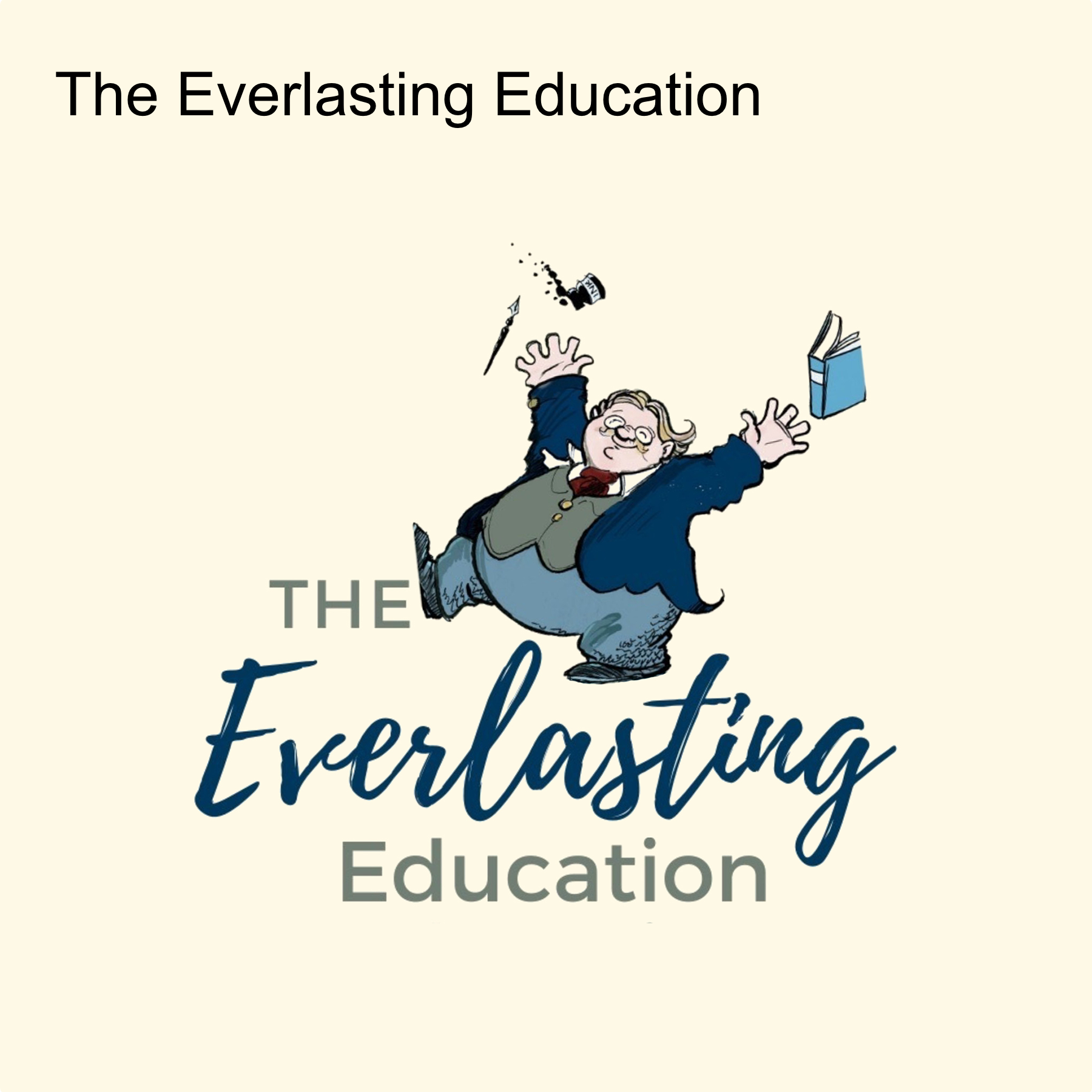
5.1K
Downloads
24
Episodes
G.K. Chesterton quipped, ”Without a gentle contempt for education no man‘s education is complete.” The Everlasting Education Podcast is a Kepler Education production in which we attempt to help families achieve the best of education through a gentle contempt for education.
Episodes

Friday May 13, 2022
Ep. 15 - The Promise of a Christian Paideia
Friday May 13, 2022
Friday May 13, 2022
This is Episode 15 of The Everlasting Education Podcast, a Kepler Education Production.
In this episode, Scott Postma and Joffre Swait discuss chapter 8 of Hicks Norms and Nobility, "The Promise of Christian Paideia." Hicks states, "The creative tension between pagan humanism and Christianity animates normative education and promises to lift the student to a level of understanding above reason in an experience of faith. Faith satisfies man's craving for a transcendent justification of the Ideal Type, at the same time as it makes possible on a universal scale the self-transcendence that the ancient philosophers sought only be esoteric means." In other words, Christianity does something for education that classical paideia could not do. Christianity is the answer to transcendence (i.e., both apprehending and approximating one's life in accordance with Truth, Goodness, Beauty) that so many of the philosophers sought but could not achieve through human reason. Instead, "the answer was provided in the person of Christ: the spirit of eros incarnate, the expressor of the divine will, and the truly divine object that self-transcending requires."
David V. Hicks's, Norms and Nobility was first published in 1981 when it won the American Library Association's Outstanding Book Award. Since that time, it has gone on to become one of the most influential books in the Classical Education movement. Hicks's "purpose in writing the book is to offer a personal interpretation of classical education—its ends, as well as some of its means—and to respond to the objections of those who might approve of the goals of such an education, but who believe that it cannot meet the needs of an industrial democracy ro that it is not feasible as a model for mass education."

Comments (0)
To leave or reply to comments, please download free Podbean or
No Comments
To leave or reply to comments,
please download free Podbean App.